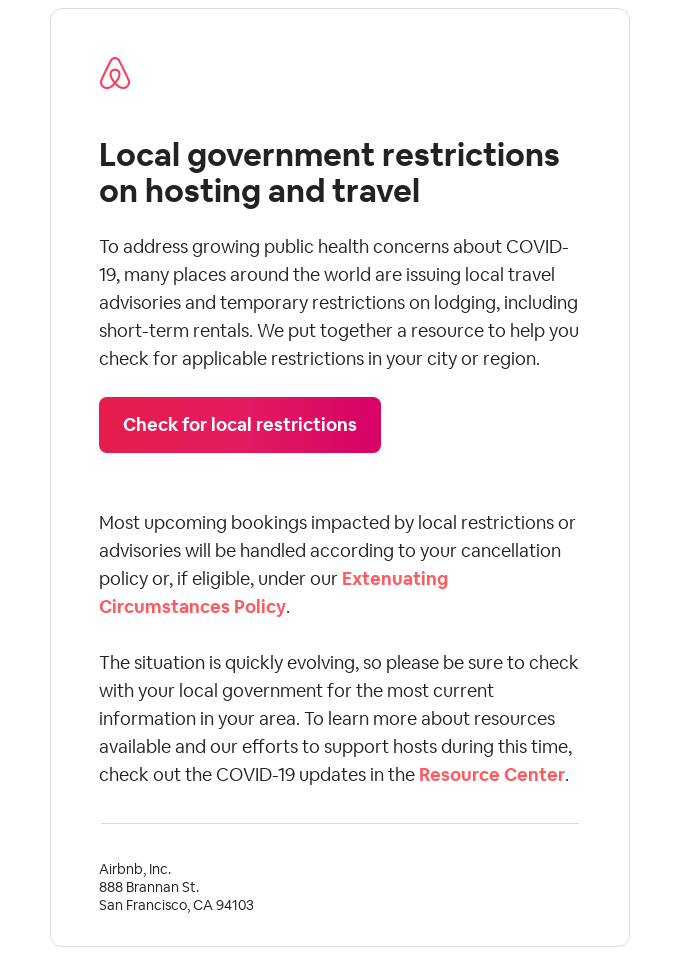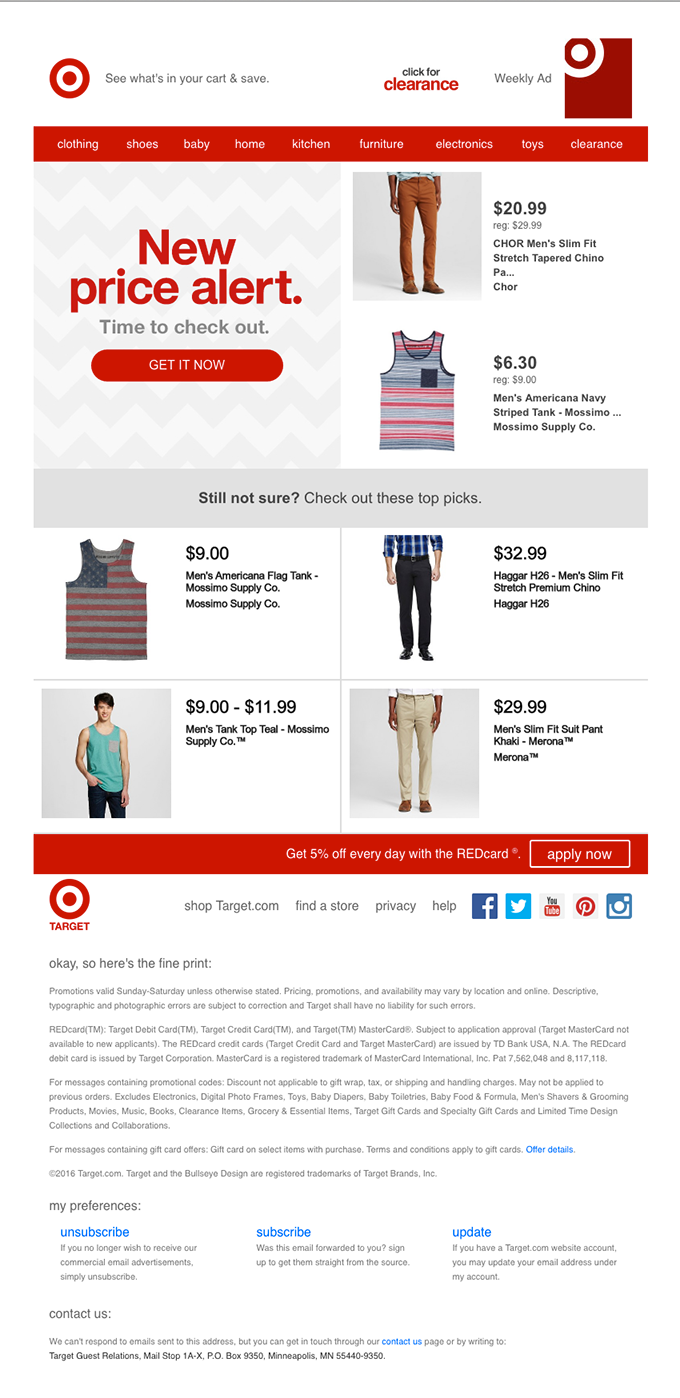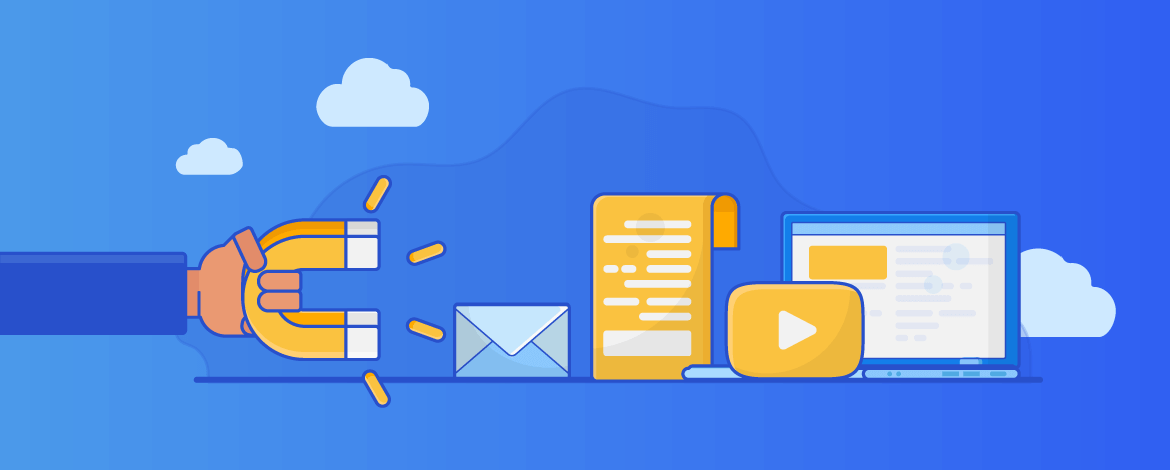Outbound marketing has been around for decades. This is the traditional method of marketing where brands seek to “push” messages out to their audience. So whether it’s cold calling, or TV advertising, trade shows or billboards, magazines, or pop-up Internet ads – outbound marketing is about sending a brand message out to a wide audience, hoping that it sticks.
Is outbound marketing still effective?
According to research – no. The average person receives 2000 outbound marketing interruptions every day and is always looking for ways to eliminate or at least minimize them. In addition, outbound marketing is too broad to be truly effective, which means that it yields a very low ROI at a very high cost.
So how can marketers still connect with their audience, communicate their message, and get them to take a meaningful (or profitable!) action?
The solution – inbound marketing.
Inbound marketing is a kind of “pull” or “magnetic” marketing where your audience finds you, rather than the other way round. By creating the right content and making it available on the right channels, you can attract the attention of your target audience who are already interested in your brand. With this readymade captive audience, all you have to do is nudge them towards the right action to yield solid results for your brand.
Inbound marketing = segmentation + content personalization + ongoing customer journeys
in order to
- Attract target audiences
- Engage with them to encourage conversions
- Delight them to ensure brand loyalty and advocacy
There are many ways to implement your inbound marketing strategy. And one of the easiest and most effective is with email marketing, especially if you have a comprehensive yet user-friendly ESP like Salesforce Marketing Cloud (SFMC) at your disposal.
Here are 4 ways SFMC can help you power your inbound marketing strategy.
- Journey Builder: Build 1:1 Journeys to Attract and Engage with Customers at Every Stage
Inbound marketing is most effective when you create different email campaigns for each stage of a customer’s journey (see the next section). But before you start with campaign planning and design, you need to map out the journey for each customer (or group of customers) to build 1: 1 journeys. This requires identifying the various activities, channels, and goals at each stage of a journey. SFMC Journey Builder makes this very easy. With its drag-and-drop visual representation, you can create 1:1 multichannel campaigns tailored by user demographics, behaviors, engagement history, and even predictive pathways to boost your inbound marketing program.
After creating a journey, you can automate email messages to be sent out to each subscriber, depending on which stage they’re currently at.
For example, you can automate a welcome message (or series of messages) after a user fills out a sign-up form on your website.

This is what a welcome journey could look like in SFMC Journey Builder:
You can then start creating journeys for complex inbound marketing use cases and add more touchpoints to create an omni-channel experience for users.
- Email Studio: Send Different Kinds of Emails to Strengthen your Inbound Marketing Strategy
An inbound marketing strategy works all through the user’s journey to move them down the funnel, first towards conversion, and then towards loyalty and brand advocacy. For example, at the beginning of a journey, when a prospect is looking for potential solutions to a problem, you can send emails that contain informative content, or lead the prospect to informative content like blogs, eBooks or tip sheets that educate them, and address a particular pain point, without being salesy or “in your face”.

After they convert on this “top of the funnel” (ToFu) offer, you can send emails that redirect them to case studies, white papers, videos, etc. that build your credibility and keep them moving down the funnel towards conversion.
Once you attract solid leads at the top of the funnel and warm them up in the middle, you can send emails with a greater sales/conversion focus. Start by sending them free trials or discount offers to attract their attention and establish some urgency. Then you can send them regular product emails based on their purchase history, re-engagement emails if they stop engaging with you, and even cart abandonment emails if they fall short just before conversion.
With SFMC Email Studio, you can create all kinds of emails for your inbound marketing program, including welcome emails, transactional emails, newsletters, dynamic emails, product update emails, special offer emails, and more, that too at scale.



SFMC Email Studio is also useful to:
- Manage subscriber data with lists, data extensions, and groups
- Customize built-in templates to create personalized emails (see below)
- Manage email deliverability to keep emails in inboxes and out of spam folders
- Perform A/B testing before final sends
- Improve inbound marketing campaigns over time with powerful analytics, reports, and dashboards
Read More: How To Integrate Gmail With Salesforce
- Content Builder: Deliver Personalized Content to Drive Brand Awareness
In a noisy world filled with too many “look at me, I’m awesome!” brands, great content can be the USP that differentiates your brand from all the others. Content that informs, inspires and resonates automatically attracts your audience, and keeps them coming back for more. Brands that create useful, relevant content, and share it via a popular, user-friendly channel like email enjoy more attention from their customers, as well as better results in terms of conversions, brand recall, and long-term advocacy. And SFMC Content Builder is one of the most powerful tools to create and manage such kickass email content, whether it’s static (unchanging) or interactive and dynamic (changes based on the user).
With SFMC Content Builder you can:
i. Create interactive content to increase audience engagement, get more qualified leads, improve opens and clicks, and increase conversions
Use of interactive content generates 2X more conversions than passive content . Compared to traditional static email content, 69% of readers prefer GIFs, 65% prefer video, and a staggering 82% prefer any kind of interactivity over no interactivity at all.
Interactive emails contain content that readers can actively engage with, instead of just passively consume. By adding elements like video, clickable links, pop-ups, buttons, GIFs, etc. you can capture the reader’s eye, feed their curiosity, and lead them towards a CTA in a fun, entertaining manner. Even better, readers can do all the fun viewing, tapping, clicking and swiping they want without leaving their inbox. This is a very effective way to deliver delightful user experiences, and encourage ongoing engagement with your brand.

ii. Create responsive emails with pre-built email templates, layouts, and content blocks, and without HTML coding

Source: Reallygoodemails
iii. Create product interest emails to highlight specific products and encourage sales

iv. Deliver relevant, personalized emails to each subscriber to encourage further action (e.g. upsells)
Brands that use email personalization generate 17% more revenue than brands that don’t.
Content Builder makes it easy to add personalization at multiple levels: subject line, greeting, product recommendations, copy, special offers, promotions, etc.

- Einstein AI: Optimize Email Campaigns for Best Possible Results
SFMC’s Einstein AI (Artificial Intelligence) engine will help you improve the efficiency of your inbound marketing program. Using Einstein, you can:
- Build audience groups and segments
- Do deeper audience analysis to uncover new personas
- Create predictive customer journeys and personalized, cross-channel experiences with tailored email content
- Engage intelligently with customers with personalized ads and other content within emails that prompt them to take some action
- Analyze campaign results to improve future campaigns
Check out these world-class Einstein capabilities to transform your inbound email marketing program:
i. Einstein Copy Insights
Analyze your subject line text to uncover language insights related to originality, character count, tone, etc., and craft subject lines that your audience is most likely to respond to. This practice can drive more opens, also improving engagement.
ii. Einstein Content Selection
Create personalized content for each customer. Once Einstein has your content assets and customer information, it automatically chooses the right asset that’s most likely to engage customers and also lead to the desired action (e.g. a purchase).
iii. Einstein Send Time Optimization
Automatically determine the best time to send an email to a subscriber. STO enables you to predict when each contact in the journey is most likely to engage with your emails within the next 24 hours. Visualize optimal predicted send times by the day or hour for all contacts on the Einstein STO dashboard. Then, with Journey Builder test for Einstein STO, you can also measure its impact, and iron out any challenges.
A Final Word
With SFMC, you can create relevant audience segments, deliver personalized content, measure campaign results, and do a lot more in order to:
- Improve lead generation: Email is 40X more effective than Twitter or Facebook
- Drive more conversions: Email is more effective than any other digital channel
- Connect with more prospects and customers: 80% of professionals believe that email marketing increases customer retention.
- Increase your ROI: Email generates $38 in ROI for every $1 spent (that’s 3,800%!)
Inbound email marketing is powerful, and with SFMC, you have all the tools and functionalities you need to make this power work for your brand. Email Uplers can help you plan and execute your next inbound marketing campaign with SFMC. To know more, get in touch!






Chintan Doshi
Latest posts by Chintan Doshi (see all)
Your Guide to Creating B2B Email Marketing Workflows That Boost Conversions
8 B2B Email Subject Lines That Get Opens